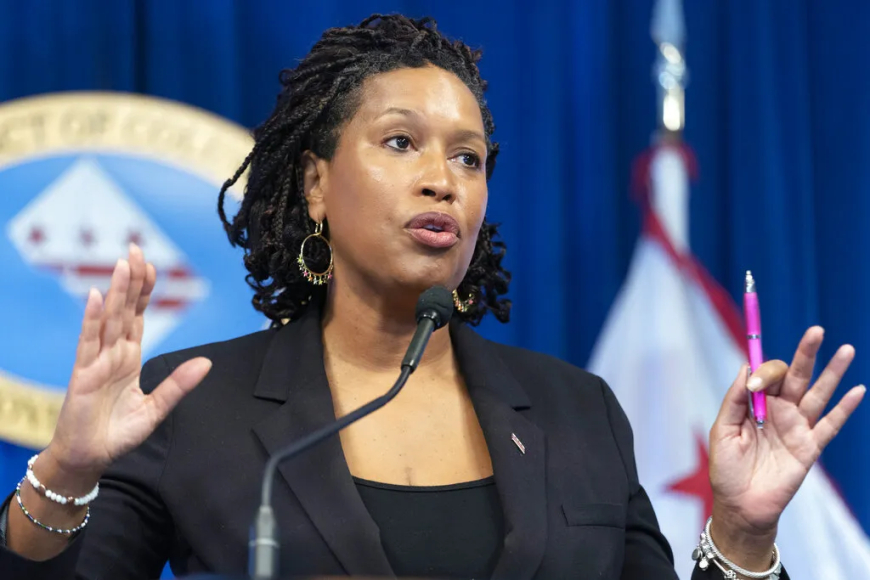DC Mayor Welcomes Trump’s Surge of Federal Officers, But Warns of a “Break in Trust” With Residents
DC Mayor Muriel Bowser praised Trump’s surge of federal officers for boosting security but warned of a “break in trust” with residents amid rising tensions.

Washington, D.C. — Washington, D.C. Mayor Muriel Bowser acknowledged President Donald Trump’s decision to send additional federal officers into the city amid recent unrest, praising their role in bolstering security but cautioning that the heavy federal presence has created a “break in trust” between local residents and law enforcement.
A Complex Balancing Act
Speaking at a press conference, Bowser walked a fine line — thanking federal authorities for responding quickly to rising concerns about crime and demonstrations, while underscoring that the surge of officers was not coordinated in full partnership with city officials.
“We appreciate any effort that ensures the safety of Washingtonians,” Bowser said. “But trust has been shaken. Residents feel decisions are being made about their neighborhoods without their input, and that undermines our ability to keep the community engaged and cooperative.”
The remarks come as the capital continues to navigate heightened political tensions, protests, and concerns over violent crime in certain districts.
Trump’s Federal Surge
President Trump authorized the deployment of additional federal law enforcement officers last week, a move his administration described as necessary to “restore order” in the nation’s capital. The officers, drawn from agencies including the Department of Homeland Security and U.S. Marshals Service, have been visible in key parts of downtown Washington.
In a brief statement, Trump said the surge was intended to “show strength and protect the seat of government from chaos.”
Reports from Reuters indicated that the move was part of a broader White House strategy to increase federal involvement in major U.S. cities facing unrest.
Resident Pushback and Community Concerns
While some residents have welcomed the increased security presence, others expressed alarm at what they described as an “occupation-like” atmosphere. Activist groups argued that the presence of unmarked vehicles and officers not wearing clear identification has fueled mistrust rather than eased fears.
According to a survey conducted by a local civic group, more than half of residents interviewed said they felt “less safe” due to the increased federal presence. Community leaders have warned that without transparency, such measures could deepen the divide between law enforcement and citizens.
Mayor Bowser’s Call for Coordination
Bowser emphasized that her primary concern is the breakdown in communication between federal authorities and city leadership. “Public safety requires collaboration,” she said. “When decisions are made in silos, the message to residents is that their voices don’t matter. That erodes trust — and trust is the foundation of effective policing.”
Her administration has requested clearer guidelines on how federal officers are deployed, their chain of command, and their responsibilities within the District.
Broader Political Context
The issue reflects broader national debates about the role of federal intervention in local jurisdictions. During the Trump presidency, the deployment of federal forces has been both praised for restoring order in times of unrest and criticized for undermining local governance.
Analysts note that D.C.’s unique status as a federal district complicates these tensions. Without the same autonomy as states, the city often finds itself caught between White House directives and local needs.
A report from The Washington Post highlighted how past federal interventions in the capital have triggered both relief and backlash, depending on the scale of unrest and the methods used.
Looking Ahead
As protests and political demonstrations continue to unfold in the capital, Bowser’s comments underscore the delicate balance between ensuring security and maintaining public trust. Both the White House and D.C. officials will likely face continued pressure to find common ground in how law enforcement is deployed.
For now, Washington residents remain wary, watching closely to see whether federal officers will ease tensions — or deepen the sense of disconnection between the government and the people it serves.














